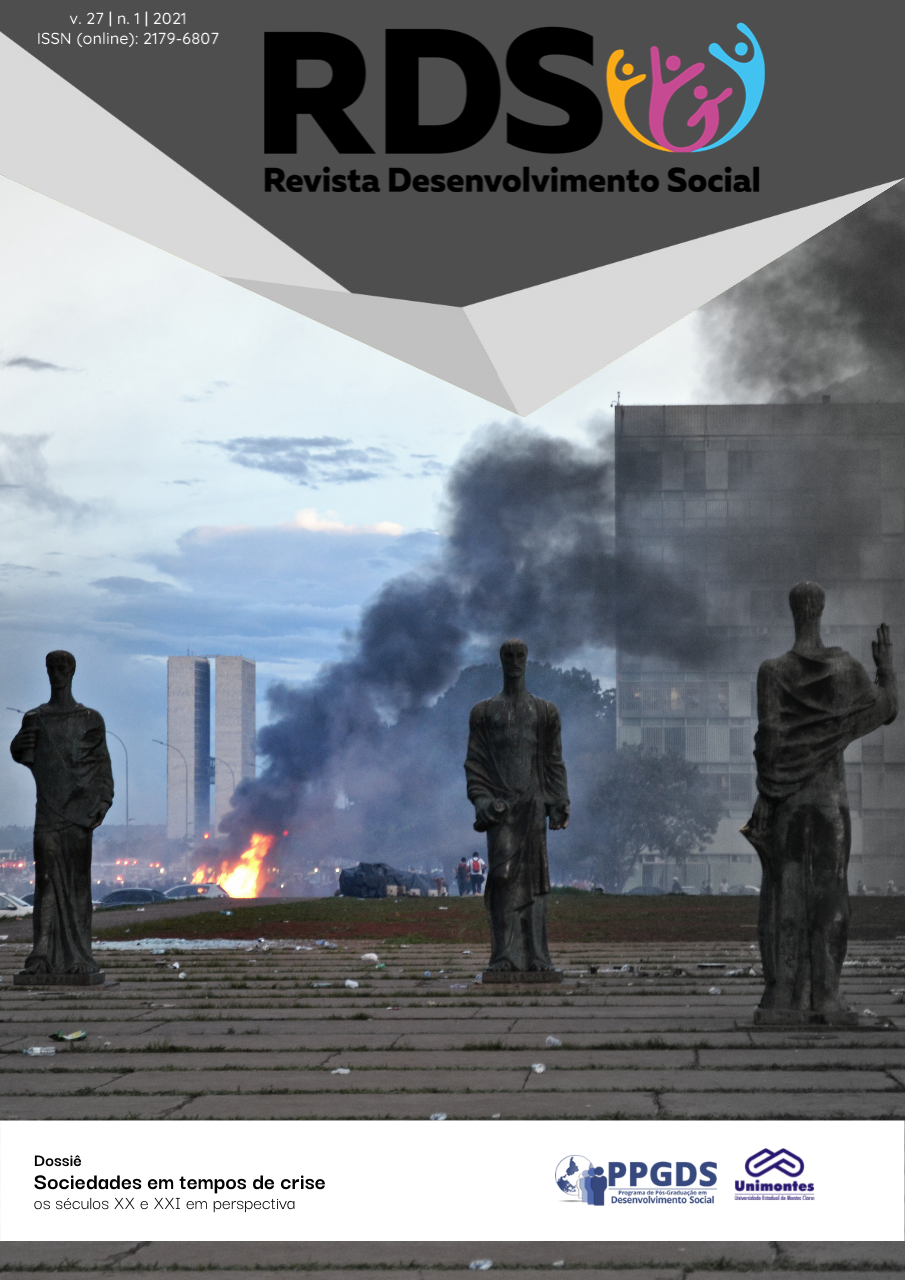Ageism in the context of the Covid-19 pandemic
How age prejudice became evident in Brazil
DOI:
10.46551/issn2179-6807v27n1p9-29Keywords:
Old age, Preconception, Coronavirus, PandemicAbstract
This article analyzes the age prejudice in Brazil, from the panorama of the pandemic of the new coronavirus, which changed the country's routine circumstantially right after the 2020 carnival. Thus, an interpretation about how the perceptions constructed socially regarding the elderly, they are crossed by prejudice and arouse hatred, reinforcing distances of respect, solidarity and empathy. A survey of the public discourse of the President of the Republic and of Brazilian businessmen is also carried out, which minimized the alert of the pandemic and contrary to the requests for isolation and / or quarantine from the World Health Organization. The interpretation of data from recent economic research helps to support the importance of the elderly as an economic force, contradicting the idea of their unproductiveness so present in current neoliberal thinking. Among the main conclusions of the work, it can be seen how the pandemic opened up the facets of a prejudice naturalized in the country and still little debated publicly.
Downloads
References
BEAUVOIR, Simone de. A velhice. Tradução de Maria Helena Franco Martins. Rio de Janeiro: Nova Fronteira, 1990.
BOURDIEU, Pierre. O poder simbólico. Tradução de Fernando Tomaz. Rio de Janeiro: Bertrand Brasil, 1989.
CÍCERO, M. T. De Senectute: Saber Envelhecer. Tradução de Paulo Neves. 1ª edição. Porto Alegre: L&PM, 1997.
DEBERT, Guita Grin. “Pressupostos da reflexão antropológica sobre a velhice”. In: DEBERT, Guita Grin. A antropologia e a velhice – Textos Didáticos, 2ª ed., 1 (13), Campinas, IFCH/Unicamp, 1998.
DOUGLAS, Mary. Pureza e perigo. 2ª ed. São Paulo: Perspectiva, 2014.
ELIAS, Norbet, O Processo Civilizador. Uma História dos Costumes. Jorge Zahar Editor: Rio de Janeiro, 1990.
FOUCAULT, Michel. Vigiar e punir: nascimento da prisão. Tradução de Raquel Ramalhete. Petrópolis: Vozes, 1987.
GUARDINI, Romano. A sublime arte de envelhecer. Petrópolis: Vozes, 2008.
HALL, Stuart. Cultura e Representação. Tradução de William Oliveira e Daniel Miranda. Rio de Janeiro: Apicuri, 2016.
HALL, Stuart; WOODWARD, Kathryn. Identidade e Diferença. A perspectiva dos Estudos Culturais. Tradução de Tomaz Tadeu da Silva. Petrópolis: Editora Vozes, 2003
HOOKS, Bell. Eu Não Sou Uma Mulher? – Mulheres Negras e Feminismo. Rio de Janeiro: Rosa dos Tempos, 2019.
KRENAK, Ailton. O amanhã não está à venda. São Paulo: Companhia das Letras, 2020.
MBEMBE, Achille. Políticas da inimizade. Rio de Janeiro: Antigona, 2016.
MACIEL, Welliton Caixeta. “Pandemia, necropolítica e purificação simbólica dos cuidadores da morte”. In: Cientistas sociais e o coronavírus. GROSSI, Miriam Pillar; TONIOL, Rodrigo (org.). – 1. ed. – São Paulo: ANPOCS; Florianópolis: Tribo da Ilha, 2020.
MARQUES, Ana Maria.” Velho/Idoso: Construindo o sujeito da terceira idade”. Revista Esboços, Nº 11 – UFSC. 2004.
ROSEMBERG, Fúlvia. “Educação formal, mulher e gênero no Brasil contemporâneo”. Revista Estudos Feministas. vol.9, nº 2. Florianópolis, 2001. Disponível em <https://www.scielo.br/scielo.php?script=sci_arttext&pid=S0104-026X2001000200011>.
SECCO, Carmen Lucia Tindó Ribeiro. “As rugas do tempo na ficção”. Cadernos IPUB, Rio de Janeiro, n. 10. 1999.
SEVCENKO, Nicolau. A Revolta da Vacina: mentes insanas em corpos rebeldes. São Paulo: Cosac Naify, 2010.
Published
How to Cite
Issue
Section
License
Copyright (c) 2021 Valmir Moratelli

This work is licensed under a Creative Commons Attribution-NonCommercial-NoDerivatives 4.0 International License.
Esta licença permite que outros(as) façam download do trabalho e o compartilhe desde que atribuam crédito ao autor(a), mas sem que possam alterá-lo de nenhuma forma ou utilizá-lo para fins comerciais.












.png)
.png)




.png)









